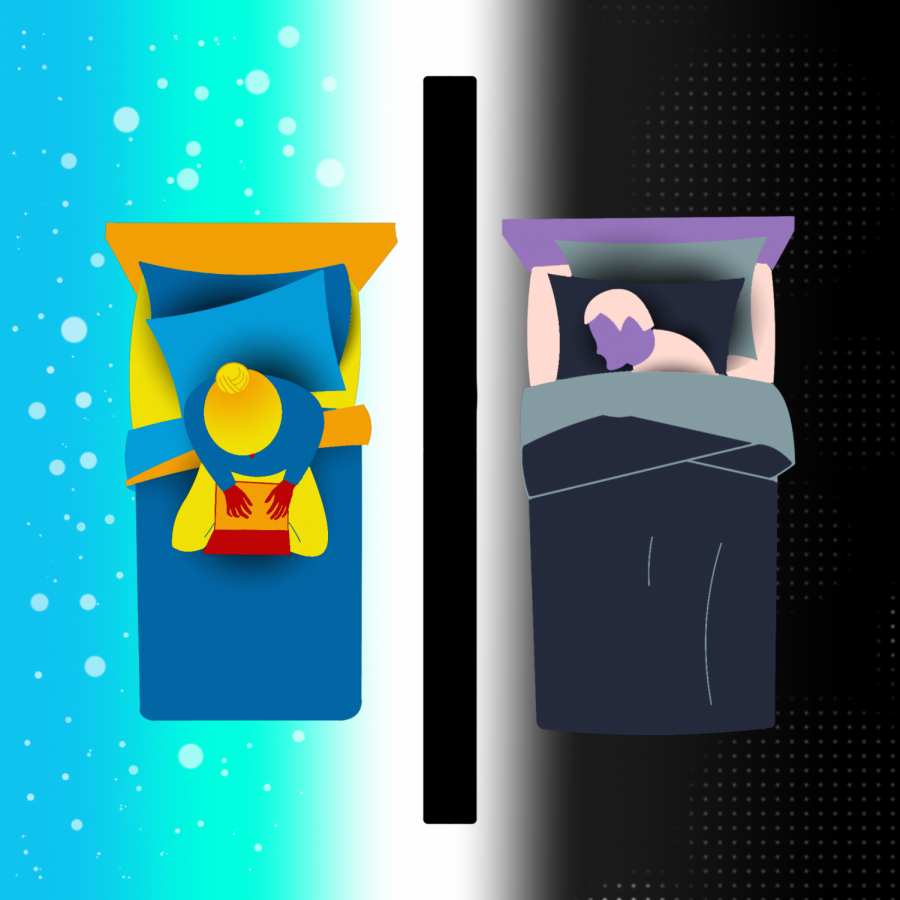Students trade off sleep to study
Feb 23, 2021
In the early hours of the evening, the sporadic and diverse lifestyles of many Illini residents can be seen throughout campus. The quiet atmosphere of common area study groups grinding the night away can be seen alongside the laughter and chatter of another group one floor above enjoying a “WandaVision” marathon.
It’s no question that, despite the continual suggestions of health experts, the value of a good night’s sleep is very subjective at the University of Illinois. With the many facets of life students have to juggle, in combination with attempts of acquiring what’s salvageable of social life during the pandemic, sleep is not the priority of many, with many riding a “crash and burn” mentality of running on the least amount of hours of sleep viable.
Isabella Palmer, freshman in engineering, described her trade-off with sleep and studying all night.
“I admittedly value my homework and studies over my sleep schedule, and really I feel a lot of students feel the same way,” Palmer said. “You don’t learn that well when you’re tired, but in the end, I have to get my work done and that can take up a lot of time. Sleep is important, but more so grades.”
Aidan Rogers, freshman in engineering, elaborated on the circumstances surrounding his tight nightly schedule that many like him face.
Get The Daily Illini in your inbox!
He said that sometimes after getting home from work and settling down, he would have to burn through more than two hours of homework straight. This, combined with the fact that he would get home at 10:00 pm many nights, meant he would get next to no time in for sleep.
“I should say, though, that I do try and get a regular bedtime of 11:30 pm but honestly college gets in the way a lot,” he said.
The value of sleep in the minds of students does not always register, especially when compared to the value of grades or social events. What many students fail to realize is how damaging the effects of lacking sleep can be on the academic mind.
Veronica Aranda, an extension educator and community health expert, is a strong supporter of health sleep schedules for Illini students. With a Master’s in Public Health focusing on community health sciences, she expressed in much detail the downside of prioritizing study over sleep.
“In addition to their classes keeping them busy, many students also have jobs, are involved in numerous activities and organizations, and engage in social activities,” she said.
It is no surprise that student sleep schedules suffer especially when they have tests coming up. However, pulling an all-nighter to cram for a test not only deprives the student of sleep but affects their learning, memory, and performance, Aranda explained. Depriving the body of adequate sleep impacts a person’s ability to concentrate, make decisions and react.
She elaborated on how sleep helps the brain process new information, enhancing the learning process and fostering better recall of the information. While the importance of studies is true, it does oneself an injustice to put so much time and effort into late-night studying yet fail to recall such information when the test rolls around and they are running on fumes.
“Students are encouraged to plan ahead and break down the course material into multiple manageable sections to study leading up to the exam rather than pulling an all-nighter,” she said.






